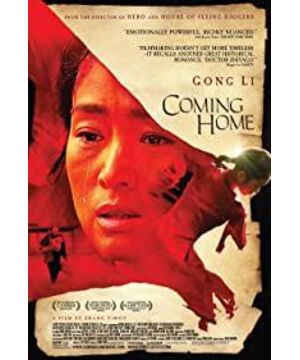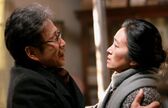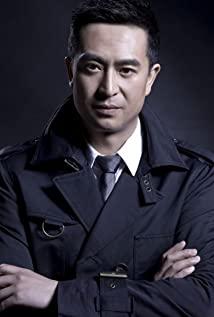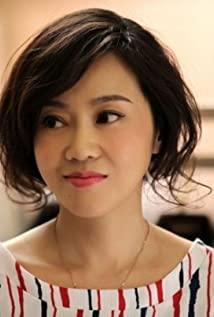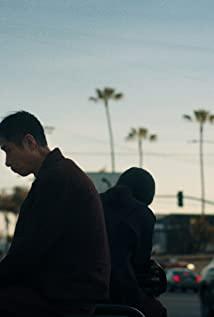Nengeng holds the hand of his son, and takes his old age with him. The great love poems in "The Book of Songs" have become suspicious because they are widely used in secularization. When I first watched Zhang Yimou’s new film "Return," I couldn’t find a better generalization than these two poems. It’s just that Feng Wanyu, who lives in memory, and Lu Yanzhi, who lives in reality, are like two parallels. The rails move forward with them, but never know each other for a lifetime.
Lifetime, this is a long time concept. How many of the perfect love we have sung about can withstand the test of this vocabulary?
But after watching "Return", I discovered that this movie with love as the carrier hides a wealth of historical reflection behind it, and has deep thinking about personal suffering and the destiny of the nation.
Even if they meet, they should not know it, the dust is covered with dust, and the temples are like frost. As a personal love, perhaps there is nothing more regrettable than this kind of misalignment. After all, Lu Yanshi "returned" in Feng Wanyu's waiting list, but after the catastrophe of life, including you and me, who can return to the established track of life in the past? Mountains and rivers remain the same, things are not human beings, how will the people who return face the unfortunate past? How can the past sufferings enter ordinary people's current lives in the form of personal memories and affect their future for a long time? "Return" tries to remind us that this is a problem that cannot be ignored.
On the surface of the story, compared to the two poems in The Book of Songs, I prefer Larkin's verse: "Among all the faces, I only miss your face." This green olive-like poem is plain and simple, but in the way of exclusion, it highlights an unforgettable nostalgia. Feng Wanyu, who suffered a double blow to her body and mind, chose to look back. She went against the times, lived in the past, and looked for her Lu Shaanyan in the crowd time and time again. Behind her look full of expectation, it is not difficult to see that in the depths of time, in her youth, there is a relationship that she most cherishes. She didn't know Lu Yanshi in reality, but she could hardly remember his face when he was young. That face was her nostalgic past, her courage in life, her life and everything about her.
Compared with the chaos in Feng's Wanyu's brain, the soberness of Lu Yanzhi, a symbol of intellectuals, means that he has to bear all the suffering alone, which is the fate of the sober. In the old days, Mr. Lu Xun once said that he was the first to wake up in the dark room. If there is no hope of breaking the dark room, it is better to let them die in their sleep. However, in "Return", Lu Yanshi's attitude towards life is positive. Facing the long road, he chose to wait like Feng Wanyu. He will not give up, and patiently waits for someone to be able to take care and care. Returning deeply from the dark memory.
One person expects Lu Yanshi to return to her past in the depths of the spirit; another person is waiting in reality for Feng Wanyu to return to his present and future. The persistence of each other just made it impossible for the two to meet again in the sober reality. This is the love of two railroad tracks watching each other, touching but hopeless. However, it is the nostalgia of the backward and the anticipation of the forward movement. These two kinds of backward forces give the movie "Return" a strong inner tension. I looked forward anxiously for a hundred minutes, seeing only the tip of the iceberg of the hero and heroine's life story. There is no mountain alliance, no rose flower, and no state of mind. The emotional presentation of deleting the complex and simplifying is so implicit and introverted. The Chinese-style love and the Chinese-style expression of thoughts allow the simple plot to secrete huge energy until the cast and crew’s The name appeared on the black screen, and I was still locked in my seat, controlled by the aftertaste of the story.
It turns out that this film not only tells a moving love story. After reading it, the lingering sound of thought circulated for three days.
Compared with Feng Wanyu and Lu Yanshi's inability to return to the past when they knew each other, Zhang Yimou used this film to complete an important return of his directorial career and return to his peak state. More than 20 years ago, he used "Red Sorghum" to tell everyone that movies can be told that way, and Chinese films have since had a new narrative choice; 10 years ago, he used "Heroes" to start the era of Chinese blockbusters, and today it has become a narrative. We are getting tired of the commercial noise; when we all foresee that the big scene, the grand narrative supported by the big production, and the funny and nonsensical creation of superficial amusement will eventually be silent. For this reason, when we look forward to the return of Chinese film art, by When he started, he didn't expect it to be him: Zhang Yimou.
Whether it is a novel or a movie, which is more difficult to interpret the rise and fall of a dynasty in the rivers and mountains of 30,000 miles, or to present the emotions and sufferings of a nation in every inch? "Return" can be said to be a difficult narrative in the history of Chinese film. In such a cramped space, with the help of extremely limited scenes and characters, Zhang Yimou told the story so hard to leave. Compared with dances that are flying all over the field and the background is constantly changing, Zhang Yimou just stood on an emotional dot and did not move to complete an outstanding performance. His performance is reminiscent of the sweeping old monk in "Heavenly Dragons and Babu". He has no tricks, but his martial arts is extremely high and his internal skills are exquisite. Maybe it is the growth of the years, maybe the years of immersion in the film. Zhang Yimou is shooting " "Returning" uses the most traditional Chinese narrative, simple, concise, and concise, allowing the limited space to hide infinite thoughts. Including Gong Li, who played Feng Wanyu, and Chen Daoming, who played Lu Yanzhi, their performances were natural and restrained, and they perfectly interpret the expressions of Chinese emotions and emotions. I think this is an inevitable choice after returning to simplicity. The authentic and honest narrative attitude and the slightly sad old tone make "Return" a cellar of emotions and thoughts. It is not noisy and unassuming. All the deep feelings and pains are hidden in the calm narration. The director's approach does not seem to be dazzling, but it is this expression of restraint and calmness that completely seals the fragrance and inner strength of a jar of good wine in a touching story.
View more about Coming Home reviews


